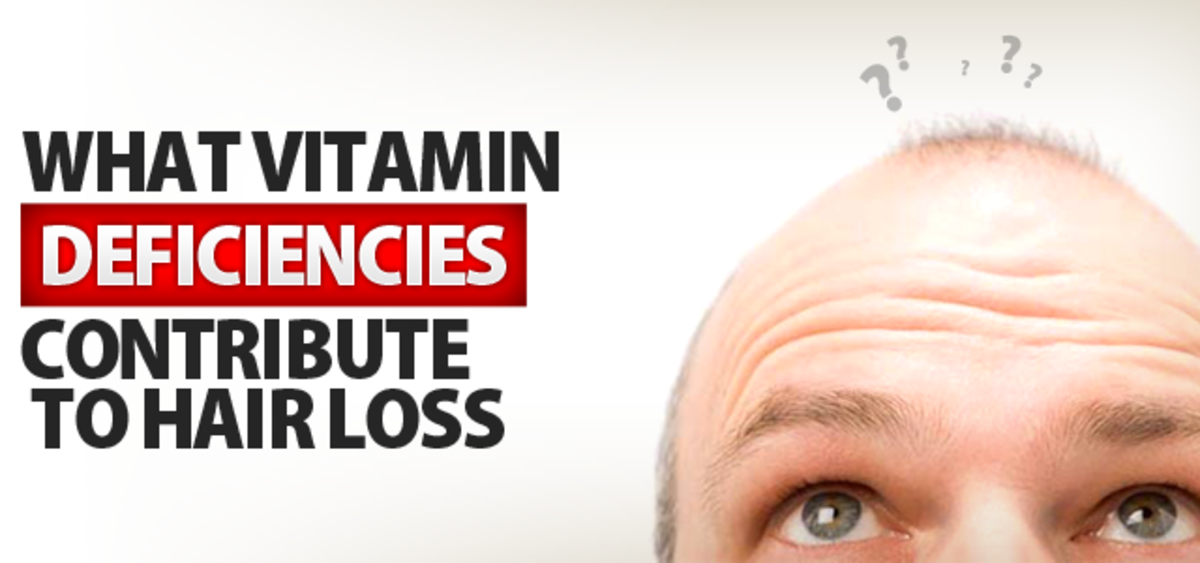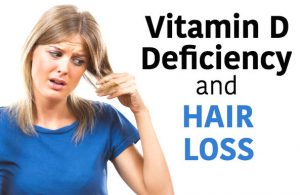What Vitamin Deficiency Cause Hair Loss
What Vitamin Deficiency Causes Hair Loss - Tips for Healthy Hair Growth
Introduction
Healthy hair is beautiful hair
For centuries, people have been obsessed with hair. Hair is seen as a symbol of beauty, health, and vitality. It is no wonder then that many people go to great lengths to keep their hair healthy and radiant. Unfortunately, hair loss is a common problem across the globe, and we're here to talk about one main cause of it - vitamin deficiency. With today's fast-paced lifestyle and unhealthy habits, vitamin deficiencies are increasingly common, and it can be challenging to get all the essential vitamins and nutrients that our bodies need to function correctly. In this post, we'll dive deeper into the topic of hair loss and what vitamin deficiencies actually cause it. We'll also give you tips on how to create a healthy hair routine that works for you.
The Connection Between Vitamin Deficiency and Hair Loss
A deeper look into the issue
If you're experiencing hair loss, you should know that it's not just an external issue; it's an internal one too. Your hair needs a healthy dose of vitamins, minerals, and nutrients to grow and thrive. Several micronutrients play a significant role in hair health. Some of these include Vitamins A, B, C, D, E, and minerals like iron, selenium, and zinc.
When your body is deficient in these vitamins and minerals, you'll notice a visible difference in the condition of your hair. Thinning hair, receding hairlines, and brittle hair are all signs of a lack of essential micronutrients in your diet.
Vitamin D Deficiency and Hair Loss
Do you have enough Vitamin D?
A study conducted in 2019 showed that there was a direct relationship between Vitamin D deficiency and hair loss in Asian populations. This vitamin has an essential role in the growth and maintenance of hair follicles, and a lack of it can lead to hair loss. Unfortunately, it's not always easy for our bodies to get enough Vitamin D naturally. The most effective way to get enough daily Vitamin D is to spend time in the sun. This can be challenging for people who live in urban areas or have darker skin. Other sources like fortified foods or supplements can help, but it's best to speak with a healthcare professional to determine your dosage requirements.
Vitamin C Deficiency and Hair Loss
An essential antioxidant for hair health
Vitamin C is an essential antioxidant that protects our cells from damage, including the cells that make up our hair follicles. It plays a vital role in collagen synthesis, which is essential for healthy hair growth. When we don't get enough Vitamin C, our cells become more prone to oxidative stress, which can lead to hair loss, breakage, and thinning hair. To get enough Vitamin C in our diet, we should aim for a balanced diet that includes fruits and vegetables, particularly citrus fruits like oranges and lemons.
Vitamin B Deficiency and Hair Loss
The complex relationship between B Vitamins and hair health
The B Vitamins include B-1 (thiamine), B-2 (riboflavin), B-3 (niacin), B-5 (pantothenic acid), B-6 (pyridoxine), B-7 (biotin), B-9 (folic acid), and B-12. These essential micronutrients are vital for maintaining healthy hair growth by helping our bodies produce energy and maintain healthy cells.
Vitamin B12, in particular, plays a crucial role in the production of red blood cells that carry oxygen and nutrients to the hair follicle. A lack of Vitamin B12 can cause hair thinning and hair loss. Vegans and vegetarians, in particular, may have trouble getting enough B12 in their diet, as it's found mainly in animal-based products. A Vitamin B complex supplement may help people who are deficient in these essential micronutrients.
Iron Deficiency and Hair Loss
The link between iron deficiency and hair loss
Iron is an essential mineral that carries oxygen to our cells, including the hair follicles. When we don't get enough iron, our hair follicles can become starved of oxygen, leading to hair loss and thinning hair. Women who experience heavy periods, vegetarians or vegans, and people with gastro-intestinal disorders may be particularly susceptible to iron deficiency. If you're experiencing hair loss, it's a good idea to get your iron levels checked by a healthcare professional.
Zinc Deficiency and Hair Loss
How Zinc deficiency can impact your hair
Zinc is a mineral that helps regulate the production of oil glands in our scalp, which can impact the overall health and vitality of our hair. A lack of Zinc can lead to hair loss, slow hair growth, and brittle hair. Zinc is found in a variety of foods like meat, nuts, and whole grains. If you're experiencing hair loss, adding more Zinc to your diet may help.
Conclusion
A healthy hair routine starts with your diet
If you're experiencing hair loss, it's not just about finding the right shampoo or hair care routine. Instead, it's about creating a healthy hair routine that's rooted in a balanced diet rich in essential vitamins and minerals. By taking care of your hair from the inside out, you'll notice a visible difference in the condition of your hair. If you're concerned about hair loss, it's always best to seek advice from a healthcare professional who can guide you in the right direction.
Remember, healthy hair is not just about looking good. Instead, it's a reflection of your overall health and well-being, so take care of it!

Quick Tips for Healthy Hair Growth
How to promote healthy hair growth
- Avoid tight hairstyles or pulling your hair back tightly, as this can damage your hair follicles and lead to hair loss.
- Don't shampoo too often; this can strip your hair of its natural oils, leading to brittle, dry hair.
- Sleep on a silk pillowcase to reduce friction, which can lead to hair damage.
- Add a hair oil to your routine, which can help nourish and protect your hair follicles.
- Choose a gentle brush or comb, and avoid brushing your hair when it's wet, as this can lead to breakage and hair loss.
- Don't use too much heat on your hair, as this can damage your hair follicles and lead to hair loss.
DIY Hair Masks for Healthy Hair Growth
How to create easy hair masks at home
There are several easy-to-make hair masks that you can create at home using natural ingredients that can help improve the condition of your hair. Here are a few ideas:
- Egg and Olive oil mask: Mix one raw egg with ½ cup of olive oil and apply it to your hair. Leave it on for 30 minutes, then rinse it out with warm water.
- Avocado and Honey mask: Mash one ripe avocado with 2 tablespoons of honey and apply it to damp hair. Leave it on for 30 minutes, then rinse it out with warm water.
- Coconut oil mask: Massage coconut oil into your scalp and hair, then leave it on for at least an hour before washing it out.
- Banana and Honey mask: Mash one ripe banana with 2 tablespoons of honey and apply it to damp hair. Leave it on for 30 minutes, then rinse it out with warm water.
- Yogurt and Lemon juice mask: Mix ½ cup of yogurt with 2 tablespoons of lemon juice, then apply it to damp hair. Leave it on for 30 minutes, then rinse it out with warm water.
With these tips, ideas, and DIY hair mask recipes, you can create a hair care routine that will nourish and protect your hair from root to tip. Remember to prioritize a balanced diet rich in essential vitamins and minerals to promote healthy hair growth, and you'll be well on your way to having beautiful, healthy hair.

FAQs
Common questions about hair loss and vitamin deficiencies
- Can Vitamin D deficiency cause hair loss?
- How do I know if I'm deficient in a specific vitamin?
- What should I do if I'm experiencing hair loss?
- Can a Vitamin B complex supplement help with hair loss?
- How can I promote healthy hair growth?
Yes, a lack of Vitamin D can lead to hair loss, specifically in Asian populations.
Symptoms of vitamin deficiencies can vary widely, so it's always best to speak with a healthcare professional for an accurate diagnosis.
If you're experiencing hair loss, it's best to seek advice from a healthcare professional who can guide you in the right direction.
A Vitamin B complex supplement may help people who are deficient in B Vitamins that impact hair health. However, it's best to speak with a healthcare professional before taking any supplements.
You can promote healthy hair growth by adopting a hair care routine that's rooted in a balanced diet and healthy lifestyle habits. Avoid tight hairstyles, don't shampoo too often, protect your hair from heat damage, and consider using natural hair masks to nourish your hair from root to tip.

How to Create a Healthy Hair Routine
A step-by-step guide to healthy hair
Here are the steps you can take to create a healthy hair routine that works for you:
- Step 1: Assess your current diet.
- Step 2: Develop a hair care routine.
- Step 3: Get enough sleep.
- Step 4: Avoid tight hairstyles.
- Step 5: Protect your hair from the sun.
Start by assessing your current diet to determine whether or not you're getting all the essential vitamins and minerals needed for healthy hair growth. If you're not, consider adding more nutrient-rich foods to your diet or taking supplements as needed.
Develop a hair care routine that works for your hair type and lifestyle. This should involve gentle shampooing and conditioning, occasional hair masks, and protecting your hair from heat damage.
Get enough sleep to give your body sufficient time to rest and repair itself overnight.
Avoid tight hairstyles that can damage your hair follicles and lead to hair loss.
Protect your hair from the sun by wearing a hat or scarf when you're outside for an extended period of time.
By following these simple steps, you can create a healthy hair routine that nourishes and protects your hair from root to tip, promoting healthy hair growth and strong, beautiful hair.

The Bottom Line
Healthy hair starts with healthy habits
There is no one magic pill or product that can give you healthy, radiant hair. Instead, it's all about adopting healthy habits that prioritize a balanced diet and lifestyle. By getting enough essential vitamins and minerals, caring for your hair regularly, and avoiding damaging habits, you'll be on the right track to healthier, stronger hair. Remember, hair loss is not just a cosmetic issue; it can also be a sign of underlying health problems, so it's important to seek the advice of a healthcare professional if you're concerned about your hair loss. With the right care and attention, you can have the beautiful, healthy hair you've always wanted!
View more articles about What Vitamin Deficiency Cause Hair Loss
Post a Comment for "What Vitamin Deficiency Cause Hair Loss"